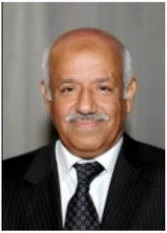CAIRO: Her eyes brought cinema s greatest filmmakers to their knees, her films are among the most popular in cinematic history; and, yes, ladies and gentlemen, she was the one who inspired the wet T-shirt contest with her film The Deep.
She s Jacqueline Bisset and she s in Cairo talking about movies, movies and nothing but movies.
The British bombshell started her career as a model in order to pay for her acting classes. Her good looks enabled her to penetrate Hollywood and were key to secondary, yet significant, roles with maverick directors like Roman Polanski in 1966 s Cul-de-sac .
Her first breakthrough performance came the next year with Stanley Donen s Two for the Road opposite America s sweetheart Audrey Hepburn and Albert Finney. The following year, she starred in Peter Yates Box-office smash Bullitt against Steve McQueen to officially declare her transition from a promising young talent to Hollywood s new leading star.
More directors came knocking at her door as she moved from one success to another.
At 63, Bisset is still stunningly beautiful, mature and receiving striking roles including one in the upcoming Vivaldi against Joseph Fiennes and Malcolm McDowell.
In her warm and friendly meeting with the Egyptian media last Friday, Bisset did much of the talking, telling lots of anecdotes about her films, their stars and the filmmakers she idolized. She refused to talk about politics.
Bisset was beaming with delight when she talked about her mentor John Huston (The Treasure of the Sierra Madre, The Maltese Falcon) with whom she worked twice in The Life and Times of Judge Roy Bean (1972) and Under the Volcano (1984).
Huston was very frightening. He was a complete legend and he used to smile with his mouth, not his eyes, Bisset said.
The first lesson Huston gave her was during the shooting of Roy Bean. Bisset s confidence had grown, and she began to ask Huston for more close ups.
Do you want to direct the movie too? Huston screamed at me. And from that moment on I learnt that that there some things that shouldn t be told to directors.
The most enlightening thing she learnt from Huston and other great American filmmakers, such as George Cukor, is that the body of the actress is as vital as the face. These directors preferred long shots to close ups and knew how, through calculated pace and smooth editing, to milk the best performances from their actors.
Bisset also spoke fondly about the great French director François Truffaut who directed her in Day for Night where she gave one of her best and arguably the most famous role of her career.
Throughout the shooting of the picture, Truffaut kept apologizing to her for not creating a better role. He was very modest and he taught me that things don t have to be realistic when you re doing a scene
One of Bisset s biggest regrets, however, was not being able to work with other distinguished filmmakers like Ingmar Bergman and the great American maverick John Cassavetes – though she did rehearse with Cassavetes on a movie that never developed beyond the drawing board.
Throughout the years, she learnt that one of the reasons many prominent actresses are never offered certain risky and daring roles is the stars agents who block young filmmakers from contacting them.
These agents don t necessarily have the same agenda as the actors and they don t realize that actors want to work in interesting projects that these filmmakers write for us.
As for the age factor that has become an unenviable obstruction for Hollywood actresses over 40 in finding good roles, Bisset told The Daily Star Egypt that indeed she doesn t receive any starring roles, but the deeper, smaller parts she s accepting now are more rewarding than the glamorous characters she played in her early career.
My ego is fairly in check and I find these smaller roles more fulfilling she said If somebody told me that you ve changed from a leading actress to a character actress, I wouldn t agree more.


